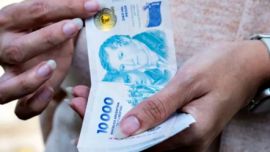Over a century ago, in his still influential book The Golden Bough, the anthropologist Sir James Frazer traced kingship to a primitive belief that societies needed someone who could be blamed and ritually sacrificed for whatever calamities befell them or, if things went well, as they sometimes did, suitably rewarded for bringing them about. In later times, Charles I, Louis XVI and Nicolas II were among the unlucky ones who, like their ancient predecessors, came to a very bad end. While now and then a monarch deemed successful would be granted god-like status, for people to take this seriously, his or her good deeds would have to be supplemented with a great deal of physical force.
Some countries still have kings or queens who, for the most part, are merely decorative, while others have presidents who play a similar role but are expected to hand their office and the paraphernalia that go with it to someone else after a certain number of years have passed. Though many would very much like to stay on, the wiser among them must be aware that remaining in power for too long can be risky.
This is certainly the case in Argentina. Had Cristina Fernández de Kirchner given her hireling Alberto Fernández the boot, as she easily could have, soon after he beat Mauricio Macri in the 2019 presidential elections, she would have made herself directly responsible for the country’s predictably disastrous performance in the years that followed; predictably, because the economic policies that met with her approval had already shown themselves to be foolish. This is surely one reason why she now refuses to stand for any elective office; without lots of money to ladle out while keeping some for herself, she would not know what to do.
It is not necessary to be a pessimist to assume that whoever emerges from the hectic pre-electoral scrum as Argentina’s next president will soon find himself, or herself, in very deep trouble. Things being as they unfortunately are, there is simply no way the economy can be put to rights unless public spending is subjected to some ferocious cuts, but, as everyone knows, there are many people out there who are dead opposed to anything that smacks of austerity. In Argentina, even hinting at belt-tightening is taboo.
It is generally agreed that the rioting in Jujuy last week was just a foretaste of what will happen nationwide soon after a presumably non-Kirchnerite government gets down to business. And if, to universal astonishment, a genuine Kirchnerite did manage to win the presidency, the person in charge of money matters would have to choose between making out that mass impoverishment is splendidly revolutionary and reducing public spending to whatever a bankrupt economy can afford. Neither option is at all attractive.
The prospects facing Argentina are so dire that it is surprising that many apparently sane men and women want to become president. For an ambitious politician, it would be far better to wait until the next government or, as is much more likely, the financial markets, have put the economy through the wringer much as happened two decades ago after the downfall of Fernando de la Rúa when Eduardo Duhalde stepped in to do “the dirty work.”
This is what many Kirchnerites must be thinking. For many of them, the outlook promising; once fully back in opposition, where by their nature they belong, they will be able to make the most of the many terrible difficulties that are certain to arise by staging violent protests on a daily basis and ranting endlessly about the savage cruelty of what they will call an extreme right-wing administration. For them, the only thing that could go wrong would be for the hated “neoliberals” to call it quits too soon and beg them to take charge of the mess they have done so much to create.
Up to now, the bulk of the population has reacted to the rapid decline in living standards with admirable stoicism, but this does not mean that there is a shortage of individuals who cling to the idea that somehow or other violence, or the threat of violence, will provide solutions to the material problems besetting the country. As well as the people who join marches organised by politicians or trade unionists to protest against the International Monetary Fund whenever it is insolent enough to ask the government of the day to explain just how it will pay back the huge amounts of cash it wants to borrow and has borrowed, there are those who imagine that, no matter what the statisticians have to say, the country is rolling in money but for selfish reasons a bunch of anti-social oligarchs refuses to disgorge it.
No government in recent years has even tried to persuade such malcontents that Argentina really is a poor country and it is senseless to pretend otherwise: it is assumed that speaking this way would discourage people who are already feeling gloomy enough. Perhaps it would, but in post-war Europe and East Asia, going on about how scarce resources were and how important it was to use them carefully helped prepare the way for the reforms that preceded an era of great prosperity.
In those days, Argentina’s politicians, literati and other notables took a decidedly haughty view of such downbeat rhetoric. They preferred to tell people at home and abroad that their country was rich enough to afford luxuries denied to those less fortunate. Some, who wax lyrical about the money which will soon come pouring out of huge shale oil deposits in northern Patagonia, salt-brine lakes chock-a-block with lithium and, of course, great stretches of fertile farmland, are still at it.
Though all such resources are valuable, an economy which relies on them rather than on brainpower is bound to be woefully distorted, with far too many people depending on handouts as is now the case in Argentina. What is more, before harnessing them, the country will have to get out of the fix it is currently in. Without foreign investment, they will remain where they are, just like the underground mineral wealth which, for a variety of reasons, has yet to be developed. Until the politicians put the country’s house in order, investors of all kinds will continue to give Argentina a very wide berth.




















Comments